Automotive Engine Industry in China Continues to Roar Ahead
2010/08/26 | By CENSTougher emission standards just one factor shaping industry development
The municipal government of one of the mega-cities in China, Guangzhou, in Guangdong Province, will soon enforce the national fourth-stage emission standards that will ban sub-standard cars from sales and registration in Southern China.
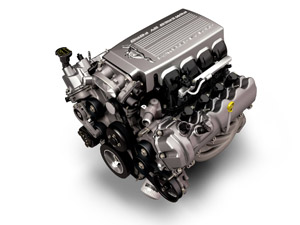
Industry experts say that the coming 16th Asian Games, to be held November 12-27, 2010, is perfectly timed to set in motion the new emission standard in Southern China, with the move more political than eco-conscious. The tougher standards effectively sideline below-par carmakers, as shown earlier during the Beijing Olympics, when the national fourth-stage emission standards were enforced in 2008: many new cars, especially those made by independent automakers without technical cooperation with foreign brands, were forced out of the market. The result was clear: China's new emission standards effectively forced carmakers to clean up their act literally.
Fortunately approximately 95% of the cars currently sold in the big southern city meet the new, more stringent fourth-stage emission regulations.
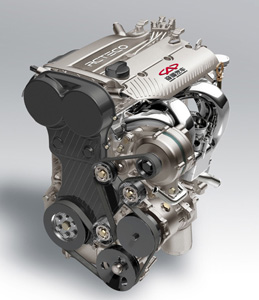
Weichai Power Co., Ltd., a major diesel-engine manufacturer in China, for example, has launched the fourth-stage compliant Landking Euro IV diesel engine, while major counterpart Dongfeng Cummins Engine Co., Ltd. has also launched a series of new diesel-engines to satisfy demand. A senior manager at Cummins Engine, one of the world's largest heavy-duty engine makers, says confidently that his company is fully ready to launch new products compliant with the new national fourth-stage or even fifth-stage emission standards.
Knockout Round
For many engine makers, the national fourth-stage standard is akin to an elimination or knockout round in the game, which will eventually reshuffle or restructure the market.
After rapid, aggressive development in the past few years, many major makers of automotive engines in China have evolved to control core new technologies, including four-valve system, quiet transmission belt, aluminum engine block, plastic intake manifold, turbocharger, VVT (Variable Valve Timing), burning process control, EOBD (European On-Board Diagnostics) etc.
In addition, Chinese engine makers have also adopted or are trying to commercialize even-more advanced technologies as VTEC (Variable Valve Timing and Lift Electronic Control), VIPL (Variable Intake Pipe Length), in-cylinder direct injection, two-stage turbo-charging system etc.
The biggest new car market of China is a hotbed attracting ever more international players, who introduce the latest products and technologies to win bigger market share. Volkswagen, for example, has introduced its industry-leading EA888 gasoline engine with in-cylinder direction injection technology for local production in China. Other automakers as Toyota, Nissan, and Ford have also accelerated launching new models and high-performance engines. Such efforts effectively up the ante in engine-industry development to galvanize local, independent players to invest more in R&D.
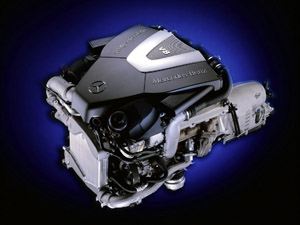
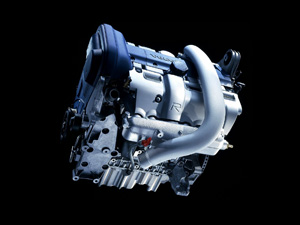
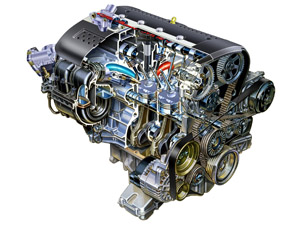
More Investment
To maintain their shares in the increasingly competitive market, all major independent automakers in China are investing more resources in as well as accelerating new-engine development. FAW Group Corp., a leading automaker in China, has successfully developed and demonstrated a prototype engine with in-cylinder direct injection.
The development and manufacturing of diesel engines for commercial vehicles continue to play the most important role in the Chinese automotive industry due to high self-content ratios and many indigenous brands.
So far, many local diesel-engine producers as Yuchai Group, Weichai Power Co., Ltd., Shanghai Diesel Engine Co., Ltd., Dongfeng Chaoyang Diesel Engine Co., Ltd., Kunming Yunnei Power Co., Ltd., have completely upgraded engines to meet the national third-stage emission standards, with some already having passed the fourth-stage regulation.
In June 2009, Cummins of the U.S. and domestic commercial-vehicle maker Foton Group set up a 50-50 joint venture: the Beijing Foton Commins Engine Co. in Beijing, whose investment will total over 2.7 billion renminbi to target making light-duty diesel engines. Beijing Foton Cummins is the first joint venture under the Foton Group, as well as Cummins' largest production base of light-duty diesel engines in China.
Caterpillar of the U.S., Cummins' major rival in North America, has also established joint ventures with two leading diesel-engine manufacturers in China, Weichai Power and Yuchai Group, to produce diesel engines and rebuild engine parts.
Weichai Power, however, is unsatisfied with only the venture with Caterpillar, also having confirmed cooperation plans with Yangzhou Power Co., Ltd. and Yangzhou Yaxing Motor Coach Co., Ltd. in the diesel-engine business. The three parties will form a strategic alliance to build synergy on the Yangtze River Delta.




